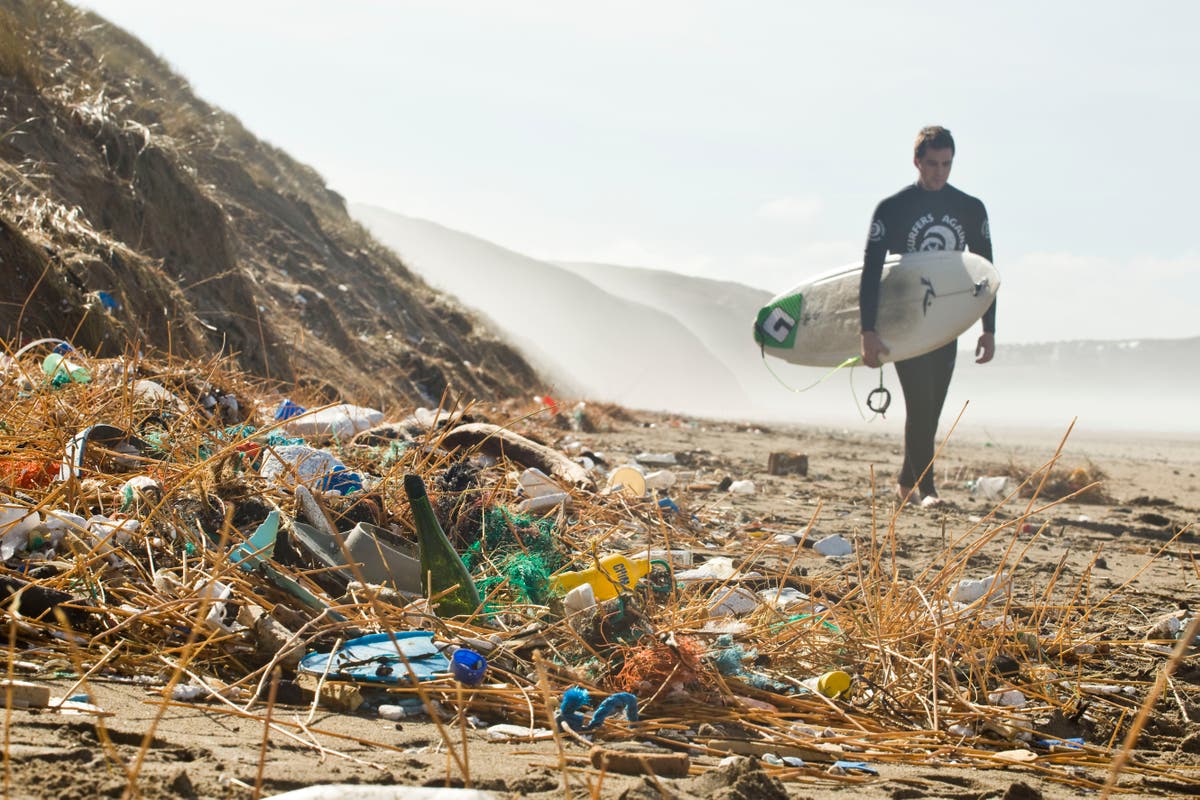As a surfer, I’m compelled to fight plastic pollution and protect our oceans – if you like beache... - 4 minutes read

My activism started at the beach. The valuable briny experiences that I have while exploring Britain’s amazing coastline have defined who I am. My best days in the ocean have been when the swell, wind, weather and tides align, bringing hours of aquatic glide until my face feels cracked with sun and salt, and my soul is filled with stoke.
Beach experiences are all the more special when I’m with my son Darwin and wife Sarah, who both share my love of and fascination with the rugged Atlantic coast close to where we live in Cornwall. It’s stepping onto the littoral fringes that give me these experiences, something I’m well aware are a great privilege. But, with privilege, comes responsibility.
I moved to Cornwall more than a decade ago to lead the leading marine conservation charity Surfers Against Sewage. However, my journey with the organisation started back in 1991 just after it formed as a single-issue pressure group that focused on the chronic sewage pollution issue of that decade.
Everyone at my organisation has a love of the coastline and has shared coastline experiences, sadly our experiences are not always so positive. Many of us have surfed in sewage-polluted waters, stepped over tidelines of plastic debris as we take the plunge into sparkling seas and we’ve witnessed the impacts of human uncivilization and the disastrous effect it’s having on our ocean – the life support system we all rely on.
The ocean is the planet’s thermostat, the biggest carbon sink, and source of food, wellbeing, livelihoods and happiness worldwide. None of us can thrive if the ocean doesn’t thrive. Each year billions of kilograms of rubbish enter our oceans and around 80 per cent of the plastic and trash that ends up in our seas comes from sources on land. Small organisms feed on microplastics and these toxic chemicals become part of our food chain.
Read more:
To combat this, our charity has helped win new legislation on plastic bags, plastic bottles and other single-use pollutants and, from this week, with the help of our hundreds of thousands of diverse volunteers and supporters, we’re tackling the sewage pollution of our bathing waters with the UK biggest beach clean up. The Million Mile Beach Clean, launched on Thursday, encourages people to get out to their local areas, on streets, country lanes, in parks and along local waterways to tackle plastic pollution and litter.
After more than a year of isolation, social distancing and reduced physical activity, the Million Mile Beach and communities with the ocean and wider environment, and provide numerous benefits to mental health and physical wellbeing. Connecting people’s happiness to a protected environment will help unlock the action we need to truly revive our ocean and land. Single-use plastic is a powerful gateway issue to take all people on this journey with us.
The Independent Climate Newsletter
Get our Free Climate Newsletter
Sign up for news and advice on saving the planet
We are making progress but we need to do much more in this vital decade. I’m determined to further democratise environmentalism. We must bring all people along on the journey to both protect and restore our blue, green and wild spaces.
As an island nation, we all have a relationship with the ocean and we must reach out and enable new and diverse ocean activists from city centres to coastal crofts. As part of this, we must also build on the Blue Planet effect – not just projecting the images of the ocean we need to protect but helping more people experience our ocean and blue spaces. Falling in love with the beach can drive a lifetime of environmentalism. Everyone should get the chance to have this permanent holiday romance.
Hugo Tagholm leads the national marine conservation and campaigning charity Surfers Against Sewage
Source: Independent
Powered by NewsAPI.org